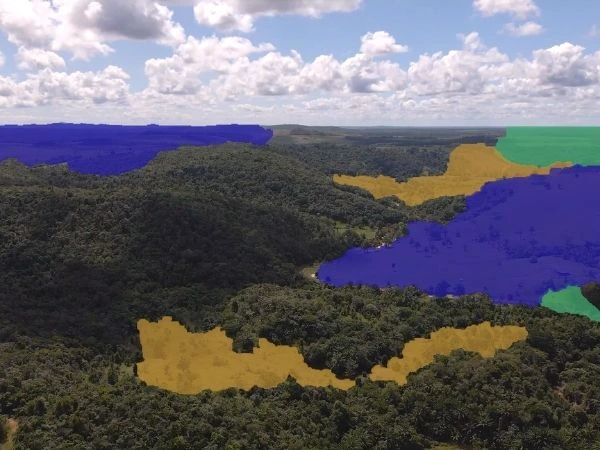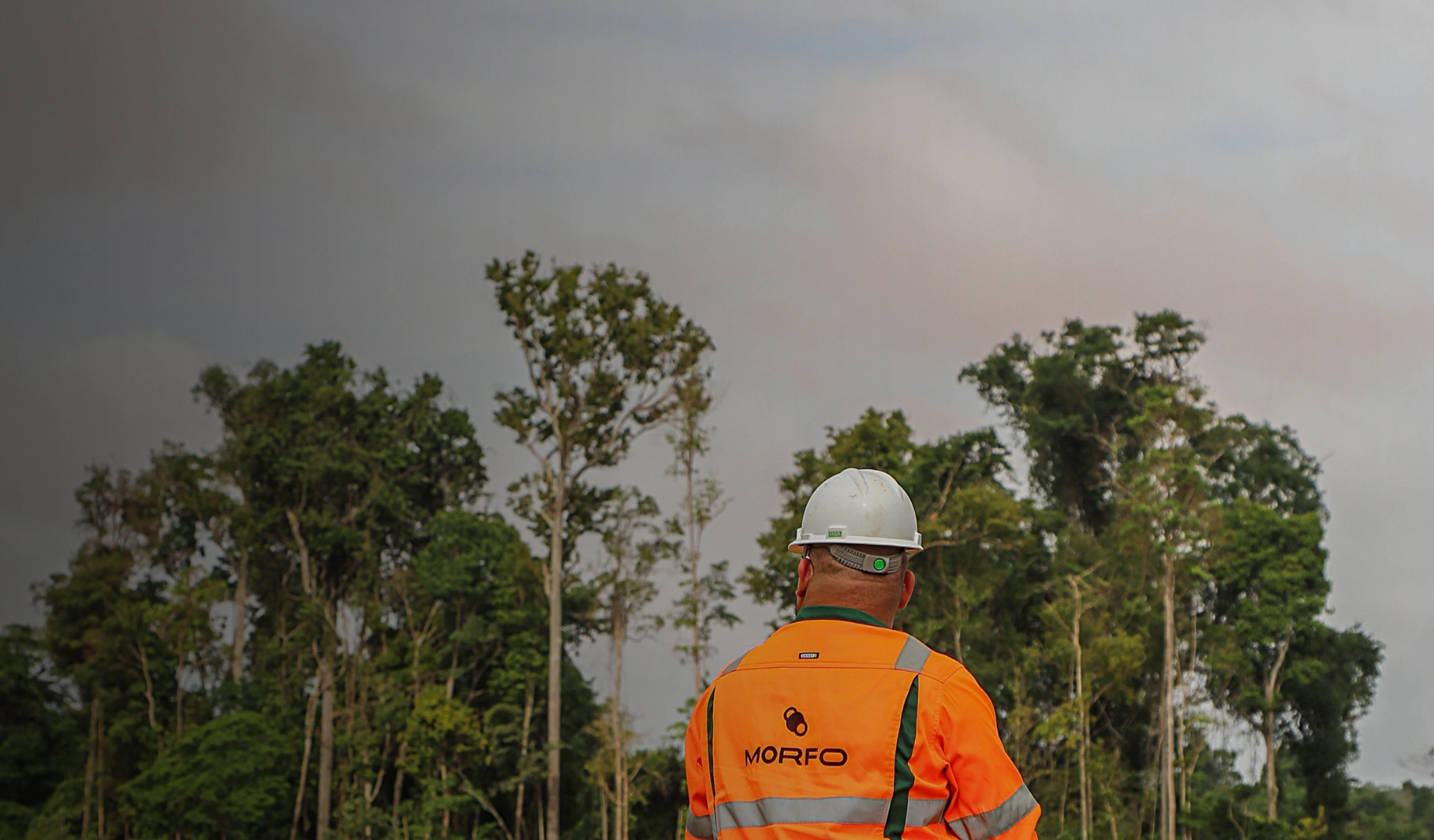New York Climate Week 2024, held from September 22 to 29, was a massive gathering for advancing climate action, with organizers expecting a turnout of 100,000 people. The event featured over 900 official affiliated events, covering a wide range of topics—from divestment to debt, justice to jet engines, and politics to pigeons. Alongside countless unofficial events, this year's theme, "It’s Time," underscored the urgency of immediate and impactful solutions to the climate crisis. As global leaders met alongside the UN General Assembly, Brazil emerged as a key player, highlighting its pivotal role in ecosystem restoration and the fight against deforestation.
1. Brazil takes center stage at Climate Week
Is Brazil becoming the focal point of the climate conversation? It might seem like an overstatement, but during New York Climate Week, Brazil undeniably drew the most attention. This isn’t just because of COP30 preparations in Belém. Brazilian organizations—government agencies, NGOs, alliances, and private companies—are showing significant progress in ecosystem restoration. Additionally, investors are drawn to Brazil’s diverse biomes, vast areas suitable for restoration, and strong local coordination.
MORFO’s Perspective: Brazil’s leadership in climate action was evident even before Climate Week, with events like the Brazil Climate Summit and SDG Brazil, where MORFO participated. For days, New York had a strong Brazilian presence, which is a very positive sign for the future. What stands out most is the strong desire, particularly among Brazilians, to co-create solutions for the future of forests.
2. COP30 in Belém: the countdown has begun
COP30 was a central focus of Climate Week, with discussions showing that preparations are well underway. Both public and private sectors are working hard to ensure this event yields meaningful results. As Professor Virgilio Viana summarized at the Brazilian-American Chamber of Commerce, "COP29 in Azerbaijan will be the last oil-focused COP. COP30 will kick off a new era centered on nature-based solutions (NBS) with a strong social emphasis." Many conversations during Climate Week emphasized tackling deforestation and prioritizing forest restoration, with a strong focus on community rights and engagement.
MORFO’s Perspective: Brazil aims to restore 12 million hectares of forest by 2030, but only about 2% of that goal has been reached so far. There's an urgent need to accelerate progress, and COP30 offers an excellent opportunity to prove that Brazil can lead a green revolution. Encouragingly, many initiatives are already in motion. For example, Pátria, a Brazilian investment firm, and U.S.-based climate tech company Pachama have launched a $100 million reforestation fund. Additionally, Brazil’s PLANAVEG has finalized its 2025-2028 strategy with five priority areas for ecosystem restoration. We’re moving in the right direction!
3. Building the “biodiversity bridge”
At a breakfast event hosted by Chloris Geospatial, Ponterra co-founder Celia Francis raised a crucial point: “The market needs to find ways to fund biodiversity and its monitoring.” Currently, there’s a gap between the cost of preserving biodiversity and the available resources. This gap must be closed to create what she called a “biodiversity bridge.”
MORFO’s Perspective: At MORFO, we’re optimistic. This Climate Week revealed that biodiversity-focused initiatives — rather than relying on monocultures — are gaining momentum. Our CEO, Adrien Pages, shared how MORFO has developed a catalog of 300 lab-tested seed species, ensuring a reliable supply while studying their compatibility with ecosystems. Our aim is to create resilient forest ecosystems that can withstand drought and disease. The results from our PROTEX-BA project, after one year, show this approach works. Plus, we’ve managed to reduce costs by up to 30%, and in some cases as much as 50%, depending on the project’s size.
4. Trees are our best technology
"Trees are our best technology" was a recurring statement throughout New York Climate Week, backed by compelling data. A single mature tree can absorb up to 22 kg of CO2 annually, making forests some of the most efficient carbon sinks on the planet. Brazil, home to 60% of the Amazon rainforest, holds immense potential. The Amazon alone sequesters around 2 billion tons of CO2 each year, playing a crucial role in stabilizing the global climate. Beyond carbon, trees support 80% of the world’s terrestrial biodiversity, contribute to water cycles, reduce soil erosion, and sustain ecosystems. In Brazil, restoring 12 million hectares of degraded land by 2030 could remove millions of tons of CO2 from the atmosphere, making trees indispensable for climate action and ecosystem restoration.
MORFO's Perspective: Carbon sequestration projects are financially challenging to develop, requiring creativity and resilience from forest developers. But these challenges—particularly the difficulty of proving long-term project permanence (Will the trees still be there in 100 years? Who will own the land in a century?)—are not sufficient excuses. Technologies and regulatory frameworks are evolving to reduce project risks and make them more attractive to buyers.
5. The price vs. risk dilemma
One of the most insightful sessions of the week, organized by Ponterra and Re.Green, focused on nature-based solutions and carbon credits. A recurring theme was the balance between restoration costs and associated risks. High prices often mean fewer risks, resulting in better-quality restoration projects—more biodiversity, better community integration, and more sustainable results. But the real challenge is achieving high-quality restoration at a lower cost.
MORFO’s Perspective: MORFO was designed to tackle this exact challenge. Depending on the size and quality of the land, we’ve managed to reduce restoration costs by up to 50%, all while maintaining high standards of biodiversity and sustainability. Our mission is to deliver scalable, high-quality reforestation projects that balance ecological health with economic viability.
New York Climate Week 2024 reinforced Brazil’s leadership in the global restoration movement. With COP30 approaching and an increasing focus on nature-based solutions, Brazil is well-positioned to drive meaningful action. At MORFO, we are committed to playing a key role in this transformation, using cutting-edge technology to ensure that restoration efforts are not only scalable but also sustainable and diverse.

.webp)




.webp)

